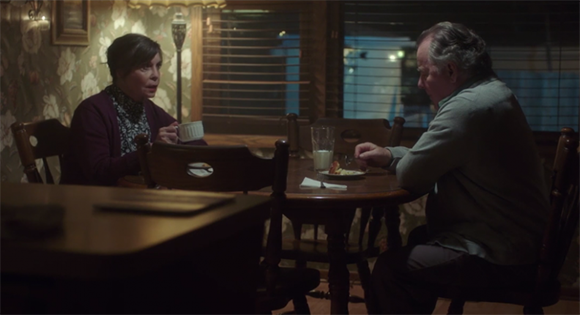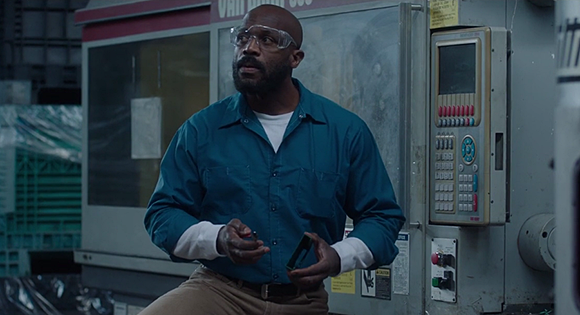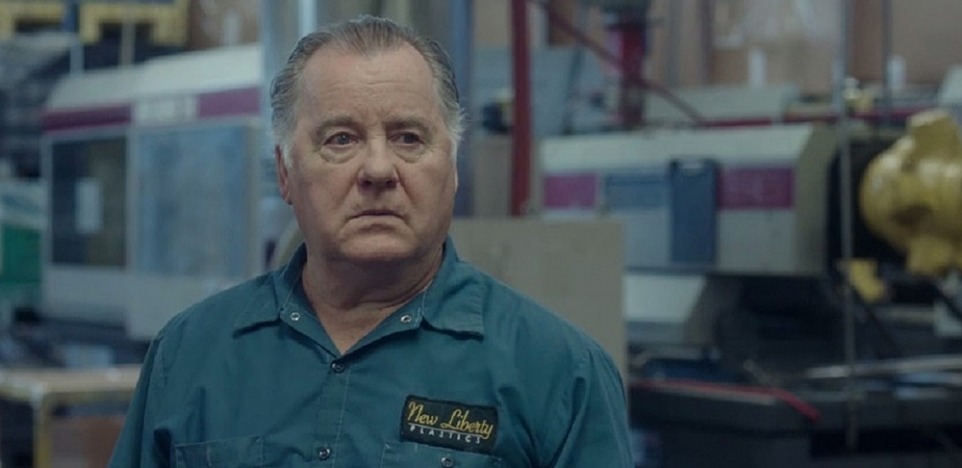At first, Working Man registers on our senses as a very timely drama about the pain, the boredom, and the dehumanization of unemployment. Allery Parkes (Peter Gerety) has been working at New Liberty Plastics in the depressed town of Orridge in the American Rust Belt for many years. He is a methodical man who walks to the factory every day, eats the same lunch, and returns for dinner with his wife Iola (Talia Shire) early in the evening.

When the plant closes, Allery grows restless at home. He decides to return to the shuttered building and resume his work in secret. Since the power has been turned off, he spends his time sweeping up and cleaning the machines. Being a man of few words, he doesn't explain this odd behavior to his wife.
Walter (Billy Brown), a charismatic African-American co-worker, notices Allery walking down the street every day. He still has keys to the plant, so one day he joins him. He also manages to get the power turned on. With supplies still in the warehouse, he determines that they can fulfill some orders and hopefully get the plant reopened. Soon other factory workers hear about their plan and join them.

Writer and director Robert Jury reveals that there is are spiritual reasons behind Allery's return to work. It's not just a matter of his not feeling fulfilled without a job. He is using work to deal with his grief, sadness, and guilt over a family tragedy. As the confrontation between the workers and management heats up Walter's leadership, we see that both men have been using their strong work ethic as a means of escaping the traumas which have shattered their inner lives.
Jury draws out two remarkable performances from Peter Gerety and Billy Brown as both factory workers are forced to come face-to-face with what they are doing and why. Best of all, they reach the healing ground of friendship build on compassion and truth-telling.
